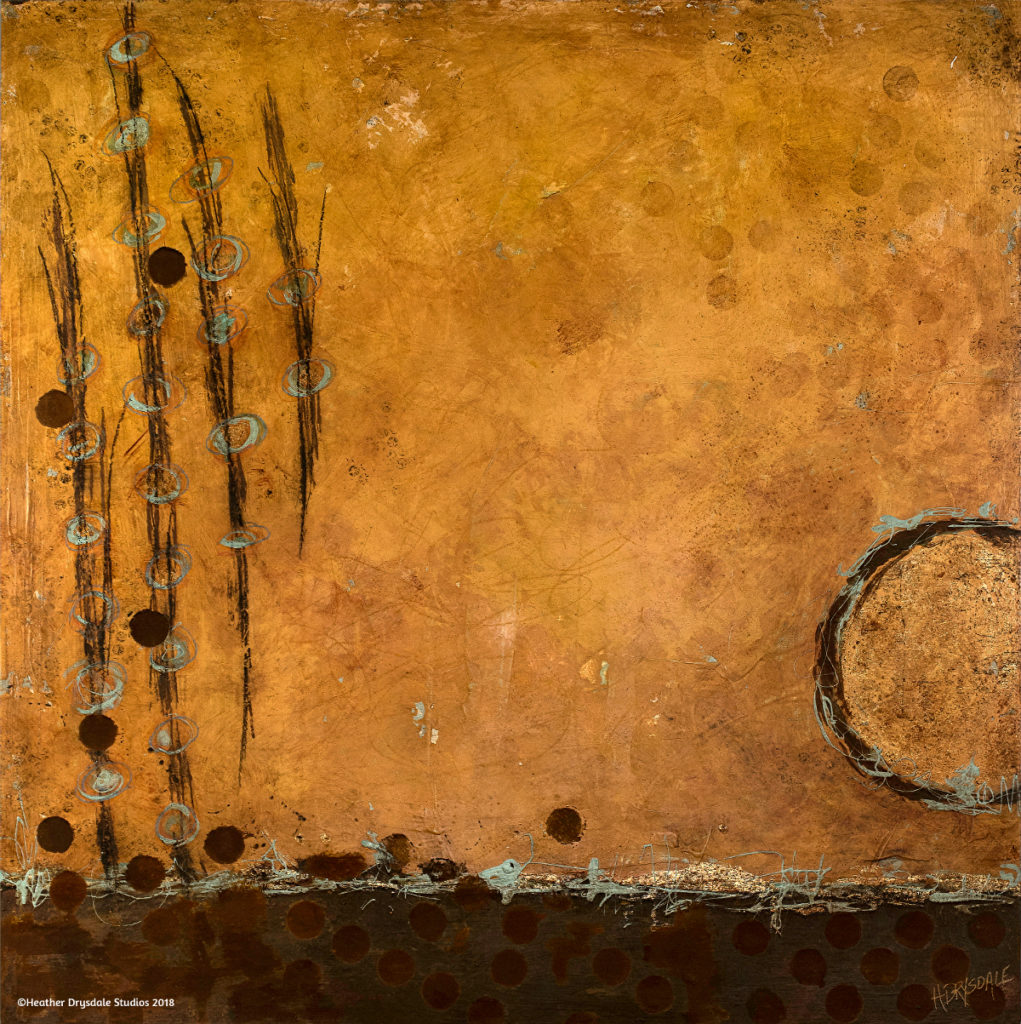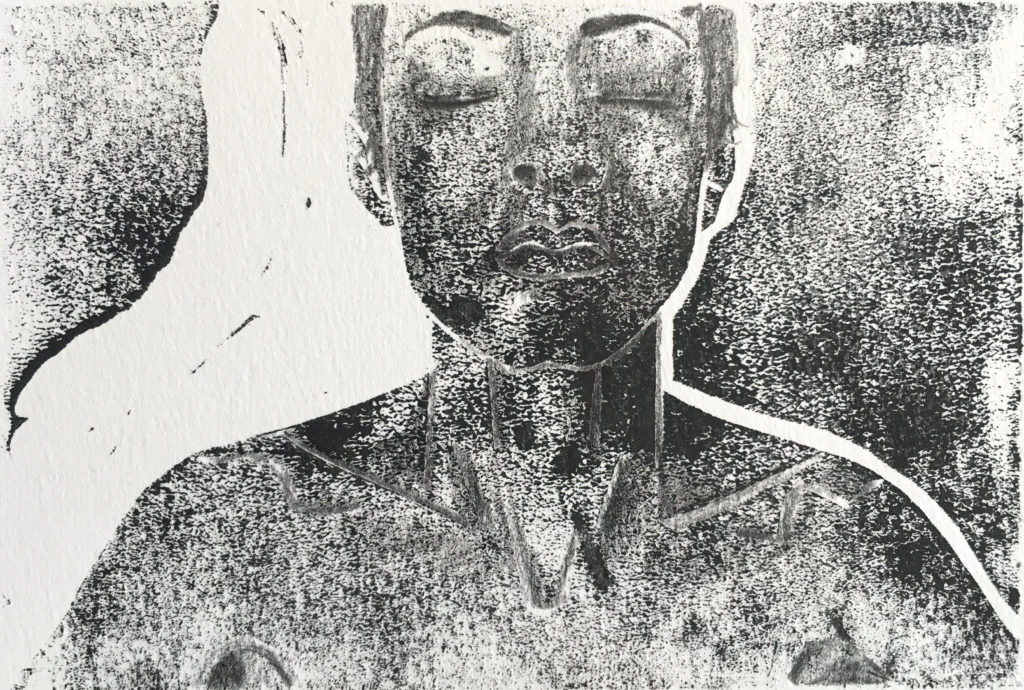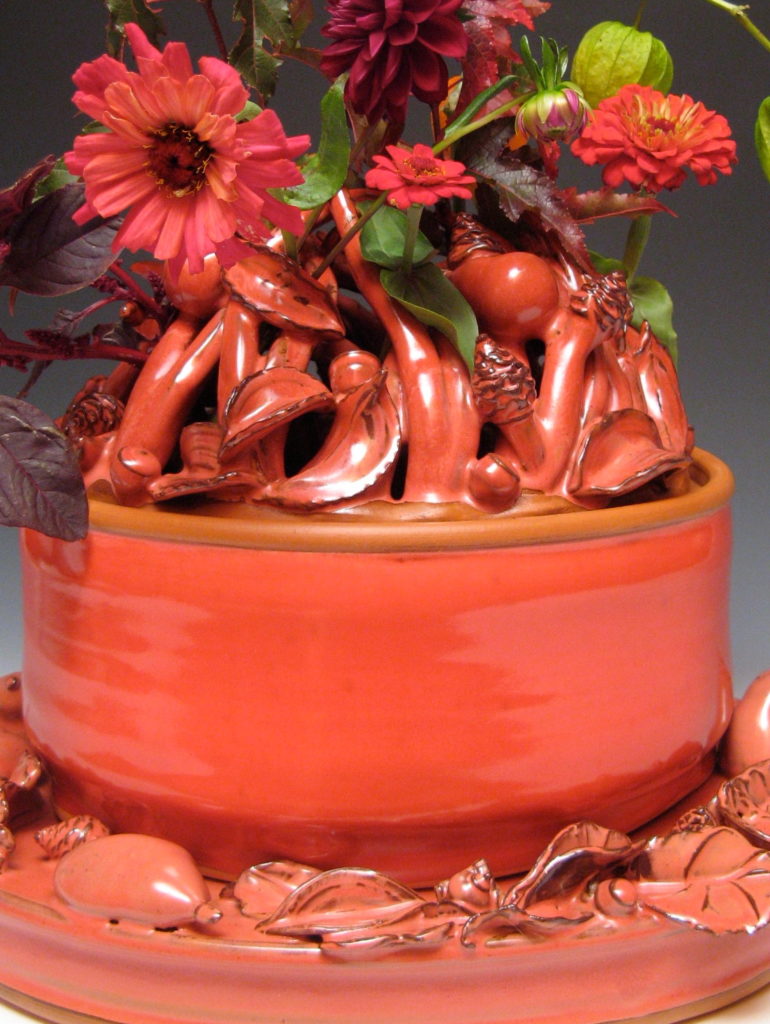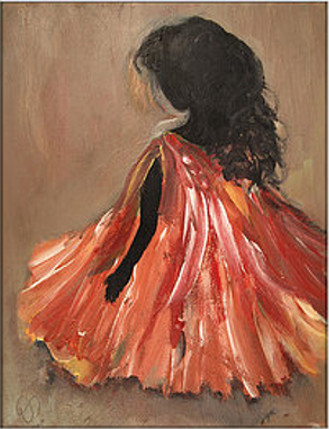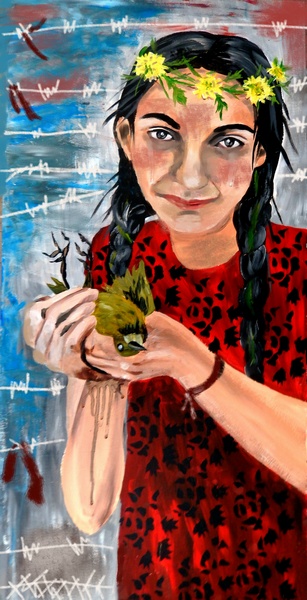My wife is not pregnant.
Two pink lines have appeared on the wand.
What now? I ask.
Hen shrugs and drops the stick into the bin. Now we wait.
Later, while she is sleeping, I slip out of bed and back to the bathroom. Hen is meticulous. The test is in the garbage; the instructions are in the recycling. It’s just as I thought: the pink lines.
When you are waiting for something, time cannot move fast enough. One day Hen says she went to the doctor. I rinse a plate and place it on the rack. She wraps a glass in a dish cloth. Water dampens the edge of my sleeve. I pull it up with my teeth and ask what the doctor said.
Hen turns to put the glass in the cupboard. Everything is fine. I’m going back in two months.
She doesn’t have to say the word: ultrasound.
In the middle ages, a woman was not considered pregnant until the baby quickened. That means, until she felt movement. Before that first kick, women could do anything and it didn’t count—poisons, pessaries, jumping up and down. The medievals got up to all sorts of things.
Babies need a lot of stuff. A crib. A stroller. They won’t let you leave the hospital without a car seat. We have a little car, a two-seater. Last year we almost traded it in for a cross-over. That turned out to be a mistake. We had to give up the deposit. One grand. But there are worse things to lose.
The medievals had it easy. The baby moved and the woman felt it and then she knew: pregnant. A clear line in the sand. But now, who’s to say? The way people go on about the sanctity of life. Sperm meets egg and then bam! It’s a baby. God has said. If you ask me, God doesn’t give a damn. This is what Hen and I think: the first three months don’t count. There’s nothing worse than a couple who announces they are four weeks pregnant. Hen says—and I agree—that’s just a late period. If you ask me, there shouldn’t be balloons or presents until after the baby makes its entrance. But then, no one’s asking me.
I pick Hen up at the office. Her face has gone white.
What took you so long?
She slides into the seat carefully. My hand makes a fist around the gear stick.
Hen touches my wrist. Neil. Go slow.
I drive like an eighty-year-old. Cautious, hugging the curb in case we need to stop. Hen has one hand on her head, one on her stomach. Elbow on the arm rest. We need to start keeping a bucket in the car. I ease into the driveway and she is already out, sprinting for the door. I linger, waiting for the flush. I can hear her heaving. I want to go inside, hold her hair. I wait with a cold face cloth. And I am thinking: This didn’t happen last time.
Ultrasounds are not how they look on TV. There’s never a doctor present, only a tech. The tech has a script. Look—there’s the head. Do you see? It’s a boy. It’s a girl. Congratulations! Twins. But if one thing goes wrong, if the baby forgets its cue, the tech gets cagey. Is everything all right? You can ask and ask until you’ve worked yourself into a panic. Your wife—feet in the stirrups—can start crying and still the tech won’t look you in the eye. The doctor will call you. That is what they are trained to say. It’s not the tech’s place to deliver the doctor’s lines.
At eight weeks the fetus measures less than an inch. It’s not even a baby yet. You can’t expect much from a tiny bunch of cells.
Hen’s sister comes by on Saturday. The girls have a date—shopping and a movie. We’ve had a bad night. Hen in and out of bed. Three am, crying with exhaustion. Why can’t I just throw up? Cells dividing and dividing. All the havoc they can wreak.
Daphne speaks in news bulletins. The new season’s stock is out! And there are sales! She’s already looked up the movie listings! Hen’s eyes are sunk into her face. Ten thirty and she’s still in a robe. I nurse an herbal tea in solidarity.
They disappear into the bedroom while Hen gets dressed. I hear murmurs through the doorway. In the kitchen, I make a list. Groceries. Mow the lawn. Replace light bulbs. The bathtub needs re-caulking. The girls leave and I close the door behind them. What I really need is a double espresso.
There are things you must not do when the pink lines appear. You must not research strollers online. You must not paint the spare room and call it a nursery. You must not choose a name. Chickens that are counted will never hatch.
We used to go to these meetings. Couples, or sometimes just women on their own, would sit around a circle and tell stories. It was a bit like AA or maybe Vegas. It was awkward at first, sharing things with strangers that we hadn’t even told our families, our closest friends. But not all of it was bad. We went three times, maybe four. Hen never said much in the group and then later, at home, even less. The last meeting we went to, a woman showed us a toque she had knit. It was brown with ears like a bear. Theodore would have worn this, she said. Theodore would have worn this and he would have gone tobogganing in the snow. She started crying and I felt Hen tense up beside me. Later in the car, she said, For fuck’s sake. That was the end of those meetings.
Hen says Daphne is coming with us to the appointment. I’m surprised she told her.
Hen says: I tell my sister everything. Is it okay that I invited her?
Yes, of course. I kiss her forehead. Your sister should be there.
Daphne’s great. I’m glad she’s coming with us. I don’t tell Hen this, but I’ve been doing my homework. Odds are, this time will be smooth sailing.
Hen pokes her head into the fridge. I’m starving. Let’s order in.
We used to be different. Hen was the one who had said, I know a great Pakistani place; let’s go. She was the one who invited me upstairs for a drink that never got poured. And in the morning, spreading marmalade on toast: I’m not usually like this.
I didn’t believe her. I watched her lick orange goop off her finger, standing there in a t-shirt and panties, and thought: I’ll never see this girl again. But then, she turned to the coffeemaker and said, over her shoulder, What are you doing later?
When no one else knows what to say, you can always count on the doctors. When everyone else has run out of words, they’ve got all the acronyms. D&C to remove the retained POC. The doctors will be brisk. They will brook no nonsense. It is their job to take care of these things. Quickly. Efficiently. This is more common than you might think. The human body is intelligent. One chromosome goes AWOL and the buck is stopped. Abort the mission. POC. Products of conception.
A date is circled on the calendar. For two months, we pretend it isn’t there. And go through the motions. Life as usual. We text each other from the office. A carton of milk. Movie at eight. One Saturday we drive out to the Gatineau Hills. The foliage has turned autumnal and crunchy. We climb to a point, a little clearing that looks out over a lake. Down below, the trees are the colours of a sunset. Hen says: Summer knows how to make a good end.
We don’t speak of the other thing. It has planted itself in the middle of our lives and we skirt around it, living on its periphery. Hen exists in a permanent state of exhaustion. By eight pm, she’s yawning, mouth open wide like a cave. I wait until she’s asleep, then wind myself around her, torso against spine, nose to neck. I kiss her bare shoulder. She exhales in truncated snores. I whisper things to her and imagine the words travelling through the dark tunnel of her ear, being carried, by blood vessels and tiny capillaries, to every part of her body—her heart, her brain, her womb.
On the afternoon of the appointment, Daphne picks us up. I fake a cavity to leave work early. I don’t know what excuse Hen used. Maybe she kept it simple—took a vacation day.
She’s already riding shotgun when Daphne pulls up. I sit in the middle, perched on the edge of the seat, behind the parking brake. Daphne is nattering. She’d like a niece and a nephew, one of each please. Twins run in the family; did I know that? Yes, I did. She’s bought a book. She’s got gum in her purse. She’s going to be the very best aunt. Daphne doesn’t know the rules. So. Hen hasn’t told her sister after all.
Hen is silent. I can’t see her face but I can see the straight line of her neck, the inward curl of her shoulders, straining for her ears. I reach around the seat and touch her arm, squeeze it gently, a little above the elbow. Her head tips back, rests on the seat.
She fainted once, years ago. At an outdoor concert, standing among the mass of shoulders and thighs. Pot smoke wafting. Hen had suddenly slumped, her body collapsing backward into mine. My arms around her, holding her up and just as suddenly, her revival, waking up as if from deep sleep. The opener wasn’t even off the stage and we had left, pushing and jostling past people: Sorry, excuse me, sorry. Hen gulping air on the sidewalk, bent double, elbows on her knees. I had one hand on her back and one raised to hail a cab. There are moments in life when you know exactly what to do.
The hospital is cold. It smells like disinfectant. We pass by rooms where machines beep in steady intervals. Dr. Horton is paged to the ER. Hen breathes through her mouth. Tiny beads of sweat dot her hairline. Even Daphne is silent.
This time, the technician is a woman. This is reassuring to me as I sit on Hen’s left. Daphne is on the right. She must turn and strain her neck to see the monitor. The tech dims the lights and squeezes a gelatinous slime onto Hen’s belly. She says words we do not hear. This part’s not important.
Hen’s chest rises and falls rapidly. I press my face against hers. Our eyes are open, noses squashed together. I cannot imagine what Daphne is thinking and I do not care. Hollow static fills the room: the sound on the other end of the line when the person you are speaking to says hold on and walks away to turn off the stove. What the inside of the body sounds like: sonorous and empty. And then, gradually, we hear it. Knocking. A tiny fist pounding on a door.

Freedom by Darlene Strong
There it is, the tech says.
Daphne asks, Is that what I think it is?
The tech has repositioned the wand and we hear it more clearly. Banging. The baby announcing its presence. Loud and insistent.
Hen is sobbing but it’s okay. These are happy tears. And I’m crying them too and so is Daphne.
You’re having a baby, she says, teary saliva forming a window between her lips. A baby!
We hold hands, all three of us, and I’m happy she is here.
One-fifty-two beats per minute, the tech says. A good, strong heart. Congratulations.
“Quickening” is a linked short story. Hen and Neil also feature in “Gliding, Weightless,” published in Riddle Fence. See Sharon Bala’s blog for details.
